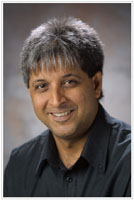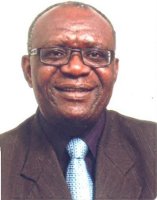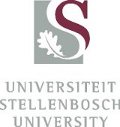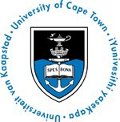
Keynote Speakers
Prof. Adam Habib
Deputy Vice-Chancellor of Research, Innovation and Advancement, University of Johannesburg

Title
The democratic right to information and the implications for academic institutions
Biography
Studying at a mix of South African and American Universities, Adam Habib graduated as a political scientist having received his Bachelor and Master of Arts degrees from the University of Kwazulu Natal, Bachelor of Arts (Honours) from the University of Witwatersrand, and his MPhil and PhD from the Graduate School of the City University of New York. He has held academic appointments over the last decade at the Universities of Durban-Westville and Kwazulu-Natal and the Human Science Research Council. Prior to being appointed Deputy Vice-Chancellor Research, Innovation and Advancement at the University of Johannesburg, he served as the Executive Director of the Democracy and Governance Programme of the Human Science Research Council. Before that, he was the founding director of the Centre for Civil Society and a research professor in the School of Development Studies at the University of Kwazulu-Natal.
Adam Habib has served as co-editor of both the social science academic journal Transformation and the official disciplinary journal of the South African Association of Political Science, Politkon. He also sits on the editorial boards of Voluntas and the South African Labour Bulletin. He has served as an external examiner and examined Masters and Doctoral dissertations for a number of South African Universities including Durban-Westville, Kwazulu-Natal, Witwatersrand, Cape Town, and Rhodes. He has also served on a number of boards and councils including those of the University of Durban-Westville, the Durban University of Technology, the International Society for Third Sector Research, Sangonet, the Centre for Public Participation, and the Centre for Policy Studies.
Adam Habib has published numerous edited books, book chapters and journal articles over the last two decades in the thematic areas of democratisation and its consolidation in South Africa, contemporary social movements, philanthropy, giving and its impact on poverty alleviation and development, institutional reform, changing identities and their evolution in the post-apartheid era, and South Africa’s role in Africa and beyond. He is a well-known public figure in South Africa whose opinions are often sought by both the print and broadcasting media.
[source: University of Johannesburg]
Prof. Olugbemiro Jegede
Secretary-General and Chief Executive, Association of African Universities
Title
Access to Information: A 21st Century Imperative to Global Development
Biography
Professor Olugbemiro Jegede is the Secretary-General and Chief Executive of the Association of African Universities, a position that he assumed on December 1, 2010 after a successful tenure in Nigeria on a special assignment in Higher Education. Professor Olugbemiro Jegede, at the invitation of the Federal Government of Nigeria to restart open and distance learning activities in Nigeria, was appointed National Coordinator, National Open and Distance Learning Programmes in 2001 and in 2003 as the founding Vice-Chancellor of the National Open University of Nigeria (NOUN). Prior to his special assignment in Nigeria, Professor Jegede served in various capacities in different parts of the world including taking charge in 1988 of the M.Ed Science Education programme by distance learning at Curtin University of Technology Science and Mathematics Education Centre, Perth, Australia. He was the founding Head of the Centre for Research and Evaluation Unit Distance Education Centre at The University of Southern Queensland, Toowoomba, Australia (1991-97) from where he moved to The Open University of Hong Kong as foundation Director of its Centre for Research in Distance & Adult Learning (CRIDAL) from 1997-2002. He was Manager of the East Asia regional node for the World Bank Global Distance Education Network at its inception in 1998. Professor Jegede holds a M.Ed and a PhD (Science Education) from University College, Wales, UK.
[source: British Council]
Michele Kimpton
Chief Executive Officer, Duraspace

Title
The future of repositories and the impact of the cloud
Abstract
Both the DSpace and Fedora repository software platforms have marked their ten year anniversary as an open source software project. Over that ten year period there are over a thousand institutions globally that have deployed either DSpace or Fedora, primarily as a institutional or disciplinary repository. These repositories were typically deployed as a stand alone systems run by University libraries. Over time libraries have been tasked with managing digital content from numerous sources, all part of the "scholarly record", such as ETD's, electronic journals, digitized books, and more recently multimedia and data. This has created new challenges for managing content.
As libraries become tasked with being the steward for an increasing amount of digital content, what role do repositories play, and how will they seamlessly fit as part of the digital landscape? As part of the response to address these needs and challenges we believe over the next ten years repositories will evolve and become more flexible components of a larger distributed system, that has the capability to be fully integrated with the Web. Over the last several years we have seen the emergence of cloud technologies that offer dynamically scalable storage and compute, over the internet, and in many cases available as a service. The opportunity exists to take advantage of this flexible web enabled infrastructure, but with open questions on how well the cloud will meet the requirements of long term persistence of digital content. In this session, I will discuss how DuraSpace, the not for profit organization has several initiatives underway within the community to further the goal of making repositories part of a distributed network in a larger ecosystem of scholarly communications, and how cloud technologies help to enable that goal.
Biography
Michele. Kimpton is Chief Executive Officer of DuraSpace and one of the founders of the organization. DuraSpace was formed in July 2009, and was the coming together of both the DSpace Foundation and Fedora-Commons organizations. Mrs. Kimpton’s key responsibilities are to develop new technologies and services for existing and new communities the DuraSpace organization supports. She currently is the Project Director for the DuraCloud open source technology and service. She sets the strategic direction for DuraSpace with the executive team and members of the Board. Mrs. Kimpton was recently awarded Digital Preservation Pioneer by the NDIPP program at Library of Congress, you can find more detail at http://www.digitalpreservation.gov/partners/pioneers/detail_kimpton.html.
Prior to joining DuraSpace, Michele Kimpton was the Founder of the DSpace Foundation, a not for profit organization set up to provide leadership and support to the community of users of the DSpace open source software platform. The mission of the Foundation was to promote open access and preservation of the world’s scholarly works. The DSpace open source software platform is freely available to anyone or any institution, wishing to preserve, manage and provide internet access to their digital collections. Currently there are over one thousand installations world wide using DSpace software.
Prior to joining DSpace, Michele Kimpton was the Director at Internet Archive for five years. In her role she works closely with National Libraries, Archives and Universities to provide technical expertise and services in web archiving. She has developed partnerships with several of these institutions to collaborate on web archiving activities, including being one of the founding members of the International Internet Preservation Consortium.





